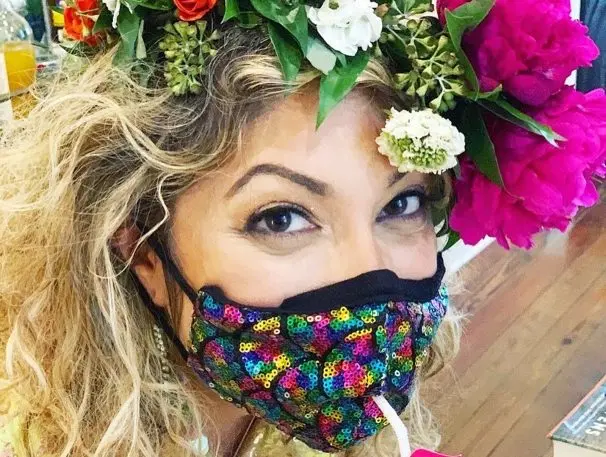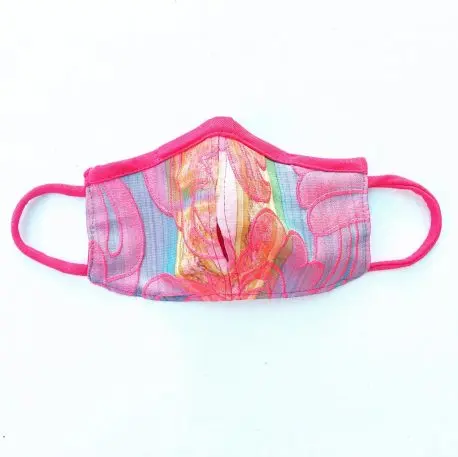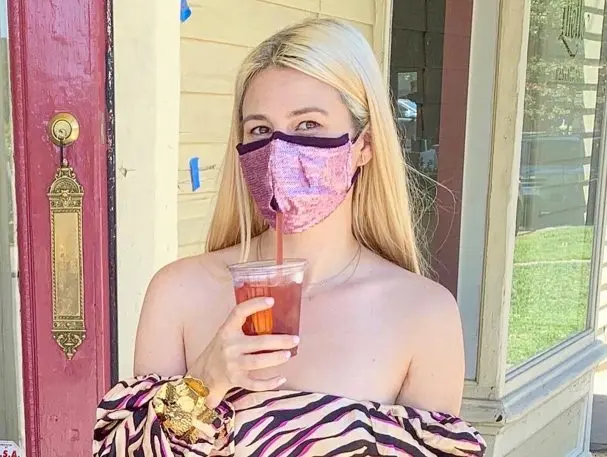“We’re all in New Orleans, and here in New Orleans, we like to drink.”
That’s Ellen Macomber. Artist. Seamstress. Imbiber. She makes just the sort of ornate, feathered, and sequined garments that you’d associate with celebrations like Mardi Gras. But with tourism down, she couldn’t afford to pay her assistant. So like many fashion houses, Macomber turned to producing something a lot of people told her they wanted: COVID-19 masks.



Still, Macomber admits she is not a public health specialist, and she doesn’t claim that her mask should be the de facto for COVID-19 prevention. But she does feel it responds to an important niche: all of the people she saw with her own eyes, gathering on porches to drink while keeping a 6-foot distance from one another but not wearing masks. There’s actually a strong historical parallel in this design. During the 1918 Spanish Flu, many men cut holes in their masks to fit cigarettes and cigars.

“Anything is better than nothing,” she says, before noting that her cocktail mask might supplement a more secure mask you’d wear near your grandmother or during a grocery store run. “Variety is the spice of life. If we’re going to be handling different errands . . . this is just one option for one of the variety of errands you’re needing to do.”

Assuming the demand for the cocktail masks ever relents, Macomber has plans to make masks without flaps, and even masks for children and babies. What started as a temporary side hustle could grow to be an anchor for her business.
“This is the biggest shitshow I’ve ever encountered in my life,” says Macomber. “So I’m just rolling with the punches, and trying to provide my clients with what they’re asking for: a mask. This is my take on it.”
Recognize your company's culture of innovation by applying to this year's Best Workplaces for Innovators Awards before the extended deadline, April 12.
